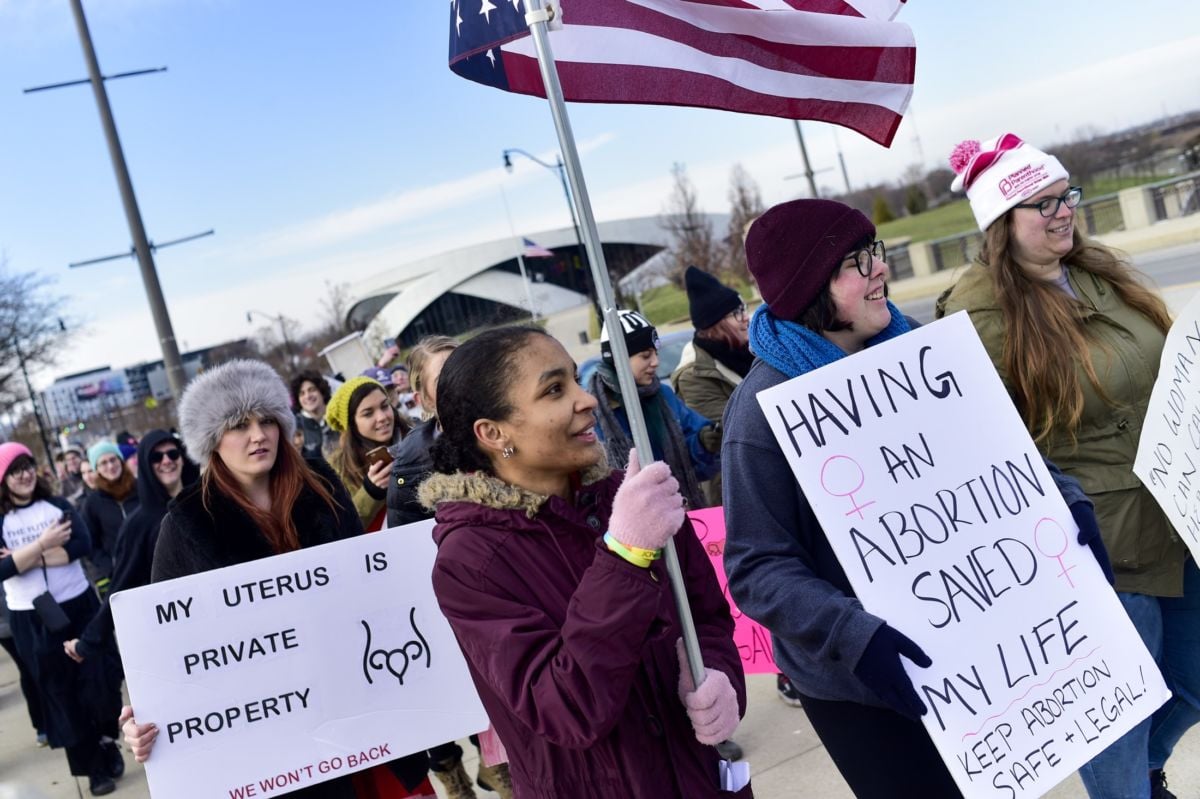Whether or not the Supreme Court decides to uphold Roe v. Wade and keep abortion legal in every state, it’s an undeniable fact that abortion access has been decimated across the country. For more than half of U.S. states, the clinics that do remain are located in just a handful of cities, leaving most of the state without any provider at all.
Prior to 2016 and the resurgence of a national anti-abortion push, the right was heavily invested in this city-by-city targeting. A few of the more extreme groups even tested out city-based resolutions or bans to see if it was possible to wage hyperlocal attacks on abortion rights, even while the state itself kept the procedure legal.
But this strategy didn’t prove very successful. In 2013 a Bakersfield city council resolution to ban abortion at the point of conception failed when the city became nervous about paying for the legal costs to defend it. That same year a referendum to ban abortion at 20 weeks in Albuquerque, New Mexico — home of one of the few remaining clinics offering third trimester abortions — failed to get enough public votes to pass.
But is it possible that abortion rights activists could have more success by trying this same city-by-city effort in order to protect access? That’s a question being tested out in Ohio.
Recently, the state finally passed a so-called “heartbeat” ban that will make abortion illegal as early as 14 days after a missed period. When Republican Governor Mike DeWine signed the bill, it was the culmination of eight years of work trying to get the ban into law.
Abortion rights supporters weren’t able to kill the bill this time, but they aren’t completely giving up on abortion access in Ohio. Instead, the Cleveland Heights City Council introduced a resolution to condemn the state’s new anti-abortion law.
Council member Kahlil Seren explained:
I’m not one for ceremonial resolutions. I know that we are a city government and there are certain things that are within our domain and certain things that are out of our control.
Seren went on to condemn the new heartbeat ban and decry what he referred to as “forced birth.” Arguing that it’s necessary to stand up for those who will be targeted by the new bill, Seren announced that the resolution would allow the city to join Columbus and Cincinnati in “fighting back” against the law when the ACLU takes the state to court:
The City of Cleveland Heights unequivocally condemns any attempt by a state, federal, or local government to restrict, prohibit, or otherwise impede access to abortion care. We recognize that access to abortion care is vital to the health of our communities and remain committed to ensuring the residents of our city have access to affordable, compassionate abortion care they can trust, regardless of age, race, gender identity or expression, or income.
The resolution further recommends filing an amicus brief in the new lawsuit against the state.
At the moment, it isn’t clear exactly what cities can do when it comes to opposing their own states’ laws. For instance, in Roswell, New Mexico, the city council recently announced that it “supports the sanctity of life” in opposition to the state’s current legal abortion laws. That said, because Roswell itself has no clinic, the actual effects of the proclamation are minimal.
But Cleveland, Columbus and Cincinnati are home to the state’s last remaining abortion clinics, and an attempt to defend abortion access in those cities is far more than ceremonial.
What can a city actually do to fight a state abortion law? We might learn the answer to that question very soon. After all, a city could simply choose not to prosecute any actions that break the new law once it is put into effect.
And that’s essentially what Michigan may be trying as an option if Roe is overturned. While the Democrats don’t have enough votes to get their pre-Roe illegal abortion law off the books, the new attorney general did publicly announce that she has no intention to prosecute anyone under it.
Could cities take it upon themselves to basically do the same?
One thing that remains certain is that if Roe is overturned, we will be in a completely new landscape when it comes to abortion access — with little idea of how these new rules will play out. Cities may or may not be able to make a dent in radical new abortion bans. But just in case they can, if you ever considered running for city council, now might be the best time to do it.
Join us in defending the truth before it’s too late
The future of independent journalism is uncertain, and the consequences of losing it are too grave to ignore. To ensure Truthout remains safe, strong, and free, we need to raise $48,000 in the next 8 days. Every dollar raised goes directly toward the costs of producing news you can trust.
Please give what you can — because by supporting us with a tax-deductible donation, you’re not just preserving a source of news, you’re helping to safeguard what’s left of our democracy.
